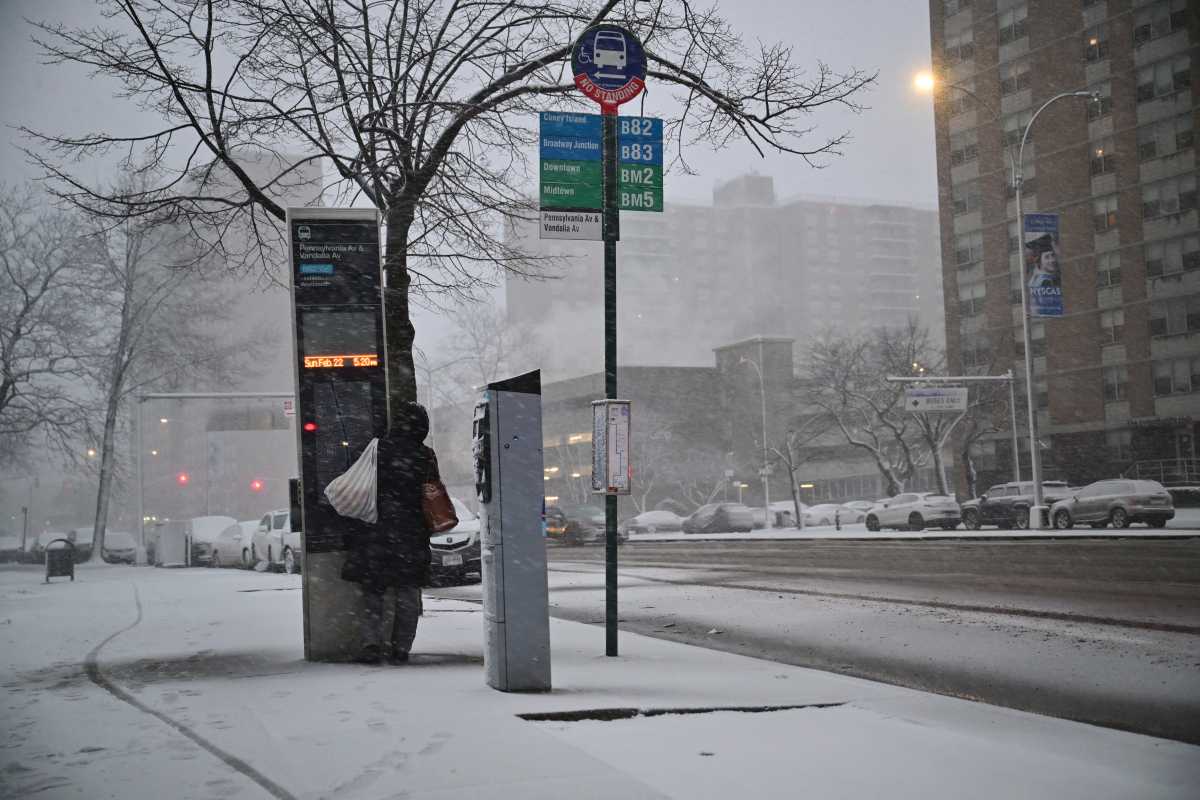Owners of a Halal cart that lost a prime selling spot when two benches were illegally installed on Fifth Avenue near 86th Street last month are taking their fight to remain in Bay Ridge to the streets — and the courts.
Sammy Kassen, the manager of Middle Eastern Halal Cart, which has sold gyros and other Middle Eastern delicacies to hungry pedestrians at the corner for more than two and a half years, wants the city to uproot a pair of benches that apparently sprouted out of the pavement in the wee hours of morning on March 23 — forcing his cart to relocate further down the block.
No one has taken credit for bolting the two mismatched metal benches to the sidewalk, and the Department of Transportation has said it did not authorize their installation — which Kassen sees as an underhanded effort to displace his business.
“Somebody put the illegal benches in,” Kassen said.
Kassen’s staff are currently asking customers to sign a statement supporting the cart and criticizing local business owners, who Kassen believes are behind the benches.
He has also recruited the help of the Street Vendor Project, a legal advocacy group affiliated with the Urban Justice Center that fights for the rights of street vendors across the city.
Street Vendor Project spokesman Sean Basinski said displacing a food cart is akin to barricading a merchant’s doorway — and shouldn’t be tolerated.
“It’s physical intimidation by putting a structure in the street,” Basinski said. “Vendors who have been selling from a legal cart, in a legal vending area, have been put out of work. It’s an injustice to them and their families and it’s an injustice to the neighborhood and the people who like to eat there.”
Basinski said that Middle Eastern Halal Cart would be well within its rights to tear out the benches, but called such a move “a last resort.”
Yet Councilman Vincent Gentile (D-Bay Ridge) says the businesses renting storefront space are the ones truly getting the shaft as more and more food carts roll into Bay Ridge.
“How can a brick and mortar business owner — who is already paying a premium to rent a storefront on a main strip while covering business and property taxes, water bills and private sanitation — compete with a ‘here today, gone tomorrow’ food cart?” asked Gentile, who is backing legislation that would subject mobile vendors to the same city letter-grading system restaurant owners face, and has asked the city to streamline and update its statutes on food cart permits and placement.
Patrick Condren, manager of the 86th Street Business Improvement District, an alliance of local small business owners, agreed with Gentile, and believes the current surge of food wagons could have dire long-term consequences for the city.
“At the rates things are going, in 10 years you’re going to have everybody selling stuff on the street and nobody paying property taxes.” Condren said.
But Basinski says studies have shown that food carts do not negatively affect brick-and-mortar businesses. Cart owners, just like restaurant owners, have to pay sales taxes and permit fees, and they also have to rent garages to store their wagons at night, he said, adding that racial prejudice may be behind the apparent hatred against Bay Ridge street vendors like the Middle Eastern Halal Cart.
“Vendors are always the newest of immigrants,” Basinski said. “Folks who have been here longer feel insecure when they have new people coming in. You can pick up from the language that opponents are using that there is some racial bias against vendors”
























